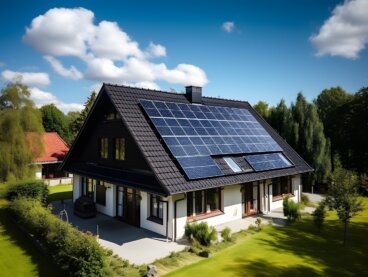Which Filtration System Should You Choose for Your Pool?
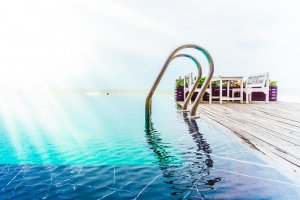
With the arrival of summer, you’re more than likely thinking of ways to get your pool ready. The water must be clean, mainly for health and hygiene reasons. Therefore, it needs to be purified in the best possible way. You may be wondering what type of filtration system to choose for your pool.
It has been proven that dirty water is a serious problem that can lead to infection. A bad filtration system accumulates residue and, consequently, the continuous multiplication of bacteria.
Today, many companies install filtration systems so that you can safely enjoy your pool. However, you should be aware of which are the best. It doesn’t hurt to know what’s hidden beneath the pool.
What is a filtration system?
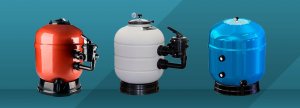
A filtration system circulates the water in the pool, passing it through smaller filters and then through the main one. It gradually removes impurities efficiently and repetitively.
What do these filters do? They prevent foreign bodies, such as leaves, getting into the pool. Keep in mind that the pool is regularly exposed to debris that must be disposed of.
First, the largest debris stays in the skimmer basket. The water then travels to the pre-filter of the pump. From there, it is passed to the main filter where all kinds of particles are retained. Finally, the clean water is pumped back into the pool.
In the summer, we must think about our health when we go swimming.
How to choose a filtration system
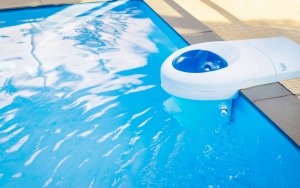
You’ll need efficiency and good results from the beginning. Therefore, you need to seek the best brands and installation. Here are a few things to consider when choosing the most suitable filtration system for your needs:
- Calculate the dimensions of the filter and of the pump itself. You can’t use small systems in large pools. In other words, you must adapt everything to the size of the pool.
- Depending on the type of pool, seek expert advice on the power of the pump and the filters. A municipal swimming pool is not the same as a family pool used by only three people.
- To avoid the risk of corrosion, examine the type of material the device is made of. They must always give you a guarantee of quality. The fiberglass polyester resin filter is the best.
- As for the pump, polypropylene combined with stainless steel offers resistance over time. With this material, there is no doubt that you can avoid any type of oxidation problems.
- The salt chlorination system is becoming popular compared to traditional systems.
Always go for the top brands on the market.
Saving water and respect for nature
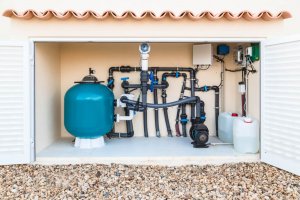
A good product is synonymous with long-term savings. While it’s true that the initial investment may be high, the price of the entire filtration system pays off perfectly in the long run. Remember, cheap can be more expensive.
Make sure that the pre-filters are of good quality. The best way for less waste to get to the main filter is through good pre-filters. Running the machine constantly will lessen its performance over time.
If the main filter is overworked, you may have to change the water more often. That translates into more expenses, high water consumption, and damage to the environment.
Also, the entire installation should be noiseless. If the system is poorly installed or the materials are not appropriate, you may hear unnecessary and annoying noises.
With the arrival of summer, you’re more than likely thinking of ways to get your pool ready. The water must be clean, mainly for health and hygiene reasons. Therefore, it needs to be purified in the best possible way. You may be wondering what type of filtration system to choose for your pool.
It has been proven that dirty water is a serious problem that can lead to infection. A bad filtration system accumulates residue and, consequently, the continuous multiplication of bacteria.
Today, many companies install filtration systems so that you can safely enjoy your pool. However, you should be aware of which are the best. It doesn’t hurt to know what’s hidden beneath the pool.
What is a filtration system?

A filtration system circulates the water in the pool, passing it through smaller filters and then through the main one. It gradually removes impurities efficiently and repetitively.
What do these filters do? They prevent foreign bodies, such as leaves, getting into the pool. Keep in mind that the pool is regularly exposed to debris that must be disposed of.
First, the largest debris stays in the skimmer basket. The water then travels to the pre-filter of the pump. From there, it is passed to the main filter where all kinds of particles are retained. Finally, the clean water is pumped back into the pool.
In the summer, we must think about our health when we go swimming.
How to choose a filtration system

You’ll need efficiency and good results from the beginning. Therefore, you need to seek the best brands and installation. Here are a few things to consider when choosing the most suitable filtration system for your needs:
- Calculate the dimensions of the filter and of the pump itself. You can’t use small systems in large pools. In other words, you must adapt everything to the size of the pool.
- Depending on the type of pool, seek expert advice on the power of the pump and the filters. A municipal swimming pool is not the same as a family pool used by only three people.
- To avoid the risk of corrosion, examine the type of material the device is made of. They must always give you a guarantee of quality. The fiberglass polyester resin filter is the best.
- As for the pump, polypropylene combined with stainless steel offers resistance over time. With this material, there is no doubt that you can avoid any type of oxidation problems.
- The salt chlorination system is becoming popular compared to traditional systems.
Always go for the top brands on the market.
Saving water and respect for nature

A good product is synonymous with long-term savings. While it’s true that the initial investment may be high, the price of the entire filtration system pays off perfectly in the long run. Remember, cheap can be more expensive.
Make sure that the pre-filters are of good quality. The best way for less waste to get to the main filter is through good pre-filters. Running the machine constantly will lessen its performance over time.
If the main filter is overworked, you may have to change the water more often. That translates into more expenses, high water consumption, and damage to the environment.
Also, the entire installation should be noiseless. If the system is poorly installed or the materials are not appropriate, you may hear unnecessary and annoying noises.







